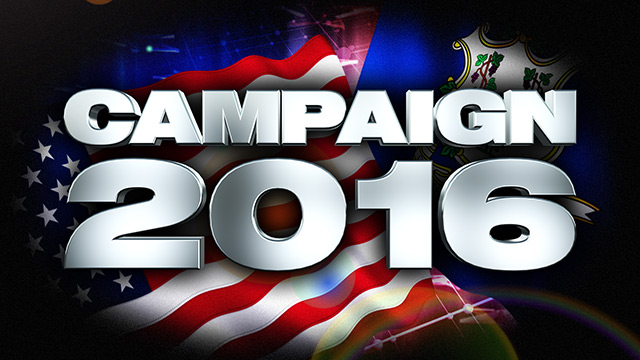Trump, Carson have months to decide on third-party runs
STEPHEN OHLEMACHER, Associated Press
WASHINGTON (AP) — Donald Trump and Ben Carson could dangle the possibility of independent runs for president well into the primary season next year, but they can’t wait forever.
State filing deadlines would give the two Republicans until about March to launch independent or third-party campaigns, experts said. That would give a well-financed campaign enough time to gather sufficient signatures on petitions so the candidate could appear on the ballot in every state.
Starting next summer would be too late.
“Ross Perot in 1992 didn’t start petitioning until March,” said Richard Winger, editor of Ballot Access News. “He was on the ballot in every state.”
Perot, a Texas businessman, got 19 percent of the vote in 1992 and Bill Clinton was elected president with 43 percent.
An independent or third-party run by either Trump or Carson would be a nightmare for Republican leaders.
If either or both take that step, the chances of winning the presidency would be a long shot. But one or both could siphon enough votes from the Republican nominee to hand the election to the Democrats.
“If you think about a Trump-Carson exit, then you’re talking about 51 percent of the current Republican electorate, based on the polling,” said Walter Stone, a political scientist at the University of California Davis.
Both Trump and Carson have pledged to support the Republican nominee for president, though Trump, the billionaire real estate mogul, has reserved the right to launch an independent bid if he feels he has been treated unfairly.
Carson, a retired neurosurgeon, raised the prospect of leaving the Republican Party on Friday after a report that GOP leaders had discussed the possibility of a contested convention if Trump fared well in party primaries.
For months, Trump has been atop most national polls in the race for the Republican nomination. Carson has recently slipped a bit while more establishment Republicans like former Florida Gov. Jeb Bush and New Jersey Gov. Chris Christie have struggled.
Launching an independent campaign for president isn’t as simple as holding a press conference and coming up with a catchy name for your new political party — something like, the Make America Great Party.
States have set up a legal maze of different deadlines and requirements that makes it challenging for even well-funded campaigns to get on the ballot in every state.
Texas has the earliest deadline — May 9 — to file as an independent candidate for president. However, several states have deadlines in March if the candidate forms a minor party, which can sometimes require fewer signatures to get on the ballot.
In Texas, independent candidates must gather signatures from 79,939 registered voters by May 9. They can’t start gathering the signatures until after March 1, the date of the Democratic and Republican presidential primaries in that state.
And all of the signatures must come from voters who did not vote in either party’s primary.
“Our ballot access laws are a mess,” Winger said. “They are absurd.”
Winger says he has charted the easiest path to get on the ballot in all 50 states and the District of Columbia —forming a minor political party in some states and running as an independent in others.
In all, he says, the candidate would need support from about 600,000 voters across the country to get on all ballots.
Trump could manage that, Winger said. And Carson probably could, too.
But could either of them win the presidency as a third-party candidate?
Probably not, said Stone, the political scientist.
“The infrastructure of American politics is so tied to the two-party system that it is hard to overcome that,” Stone said.
Third-party candidates might poll well early in the campaign. But if they are not winning, their supporters might start worrying that they could be wasting their vote. Or worse, Stone said, handing the election to the opposing party.
“Think about how a Republican candidate would campaign,” Stone said. “They would say that a vote for Trump is assuring victory to your least favorite candidate.
“As they make that argument, voters begin to drift back to their home party.”
___
Associated Press writer Laurie Kellman contributed to this report.
[livemarket market_name="KONK Life LiveMarket" limit=3 category=“” show_signup=0 show_more=0]



No Comment